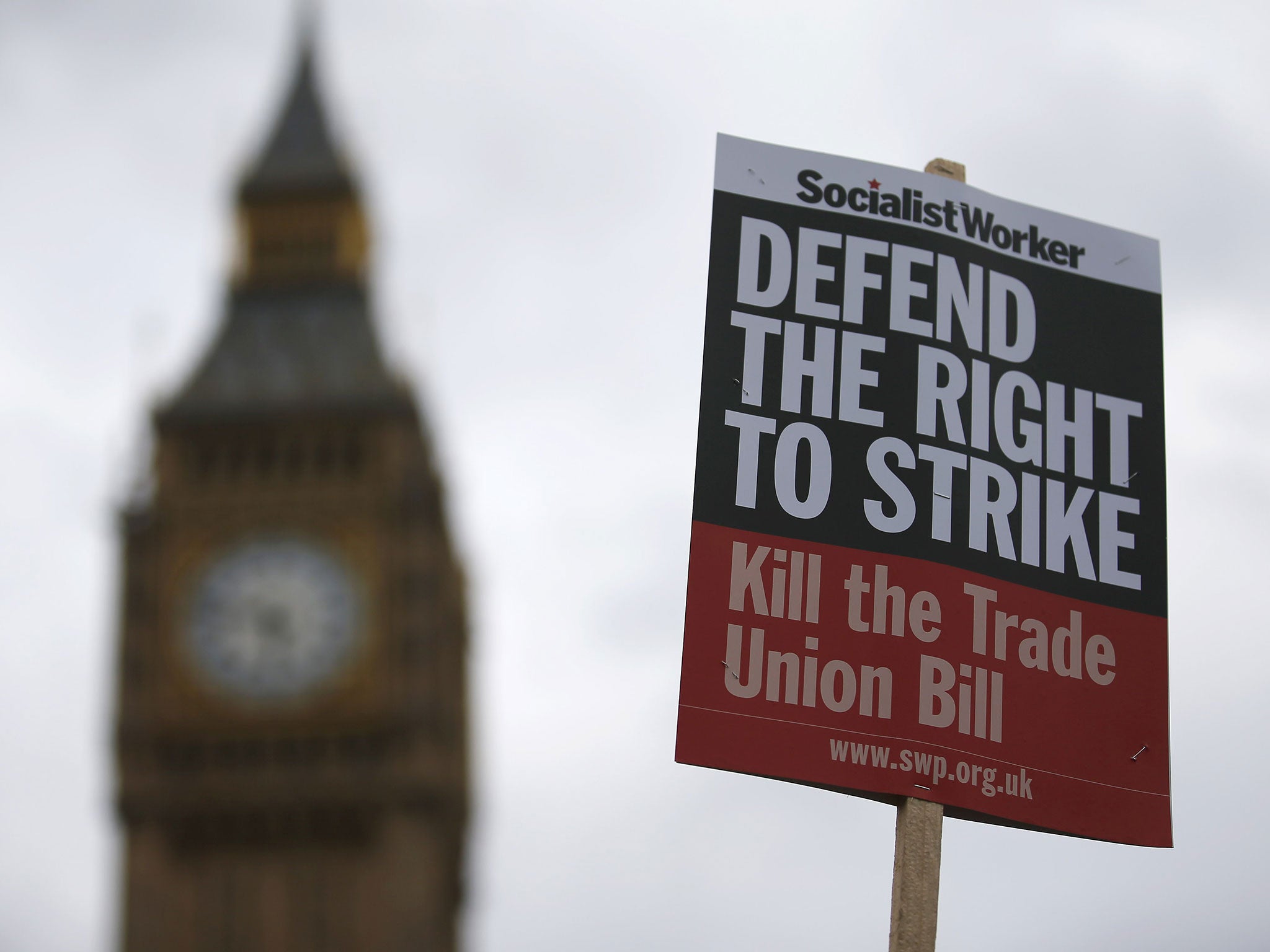Trade Union Bill: Government defeated over plans to force union members to opt in to paying political levy
Government also defeated over moves to require electronic balloting for industrial action

Your support helps us to tell the story
From reproductive rights to climate change to Big Tech, The Independent is on the ground when the story is developing. Whether it's investigating the financials of Elon Musk's pro-Trump PAC or producing our latest documentary, 'The A Word', which shines a light on the American women fighting for reproductive rights, we know how important it is to parse out the facts from the messaging.
At such a critical moment in US history, we need reporters on the ground. Your donation allows us to keep sending journalists to speak to both sides of the story.
The Independent is trusted by Americans across the entire political spectrum. And unlike many other quality news outlets, we choose not to lock Americans out of our reporting and analysis with paywalls. We believe quality journalism should be available to everyone, paid for by those who can afford it.
Your support makes all the difference.The Government has suffered a crushing Lords defeat over controversial moves to force trade union members to opt in to paying the political levy.
Tory peers have joined cross-party criticism of the policy plan, which could deprive Labour of £8m funding a year, warning that the scheme is partisan and divisive.
The Lords voted by 320 to 172, a majority of 148, for the changes to apply only to new union members and for the unions to be given more time to introduce the system.
Baroness Smith of Basildon, Labour leader in the Lords, said: “This resounding defeat at the hands of peers from all sides shows just how poor the Government has been in making its case for ‘opt-in’ and an overhaul of the trade union political fund.”
However, Business Minister Baroness Neville-Rolfe insisted the move was not aimed at Labour’s finances, but intended to fulfil a manifesto commitment to make union political levies more transparent.
It is the second time the Lords have defeated minsters on the measure. The Trade Union Bill will now return to the House of Commons, where ministers are expected to try to force through the plans despite the Lords reverse.
The Government was also defeated over moves to require electronic balloting for industrial action.
Peers voted by 320 to 181, a majority of 139, to commission an independent review of the idea and introduce pilot schemes.
Join our commenting forum
Join thought-provoking conversations, follow other Independent readers and see their replies
Comments